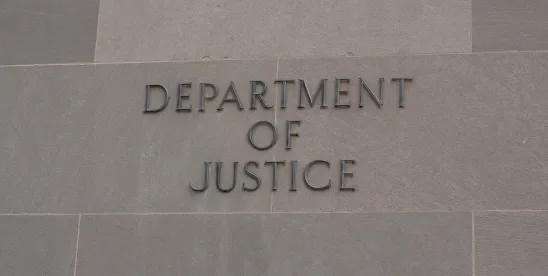On 9 June 2025, Deputy Attorney General Todd Blanche released a memo (the Blanche Memo)1 detailing the long-awaited enforcement guidelines on how the Department of Justice (DOJ) under Attorney General Pam Bondi will enforce the Foreign Corrupt Practices Act (FCPA).2 In the lead up to the Blanche Memo, many wondered whether the new enforcement policies would effectively neutralize one of the DOJ’s most powerful tools of corporate criminal enforcement.
Contrary to many predictions, the Blanche Memo does not spell the death of the FCPA. Instead, the Blanche Memo depicts a refocused FCPA, oriented around the America-First priorities of the Trump administration. This America-First FCPA approach announced in the Blanche Memo depicts a future of FCPA enforcement that will be both more tailored (allocating DOJ resources to the most serious cases) and more expansive (using the FCPA to advance national-security interests, protect American supply chains, and scrutinize financial institutions and third parties used by cartels or transnational criminal organizations (TCOs)).
The Blanche Memo ushers in a new era of FCPA enforcement and new risks for companies in the global economy. The following sections provide a brief summary of the Blanche Memo’s content, followed by a few key practical takeaways.
Background
The release of the Blanche Memo officially marks the end of the 180-day pause of FCPA investigations, which was initiated by President Trump’s 10 February 2025 Executive Order (EO No. 14029) (the FCPA Executive Order).3 That order imposed a temporary freeze on new FCPA investigations and enforcement actions, and directed newly confirmed Attorney General Bondi to conduct a comprehensive review of the DOJ’s historical and ongoing FCPA enforcement practices.
Prior to the FCPA Executive Order, Attorney General Bondi already signaled a sharp pivot in enforcement priorities in her 5 February 2025 memorandum titled “Total Elimination of Cartels and Transnational Criminal Organizations” (the Bondi Memo).4 That memo directed the DOJ’s Criminal Division to prioritize FCPA investigations into organizations that facilitate or are connected to the operations of drug cartels and TCOs.
Taken together, the FCPA Executive Order and Bondi Memo laid a broad foundation for the DOJ’s revised aims—reduce the breadth of FCPA enforcement, increase competitiveness of US companies, and reorient the program around US national interests. The mechanics of those principles, however, were left unanswered—until now.
Guiding Principles of the Refocused FCPA Framework
Following the guidance set by the FCPA Executive Order and the Bondi Memo, the Blanche Memo is anchored by two overarching principles:
- Limiting Undue Burdens on American Companies: the DOJ will refrain from penalizing legitimate commercial conduct abroad or imposing excessive compliance burdens that distort competitive parity.
- Targeting Conduct that Undermines US National Interests: Enforcement will focus on foreign bribery that materially harms US security, economic interests, or global competitiveness.
The Blanche Memo also continues the long-established trend towards individual prosecutions, instructing prosecutors to “focus on cases in which individuals have engaged in criminal misconduct and not attribute nonspecific malfeasance to corporate structures.” Prosecutors are further instructed to conduct investigations “as expeditiously as possible,” and to “consider collateral consequences, such as the potential disruption to lawful business and the impact on a company’s employees, throughout an investigation, not only at the resolution phase.”
Substantive Factors for Prosecutorial Evaluation
In determining whether to initiate or pursue an FCPA matter, prosecutors must evaluate the following four factors, which represent a recalibrated hierarchy of enforcement priorities:
Cartels and Transnational Criminal Organizations
The DOJ will prioritize foreign bribery cases that support, facilitate, or are intertwined with cartel or TCO activity.5 However, the Blanche Memo is not limited to cartels and TCOs themselves; rather, the Memo takes a broad approach to the types of cases that involve cartels and TCOs, and how it will prioritize cases where even indirect connections to cartels or TCO’s exist. The Blanche Memo instructs prosecutors to consider whether potential bribery cases:
- Are associated with the criminal operations of a cartel or TCO;
- Utilize shell companies or money launderers known to support such organizations; or
- Are linked to foreign officials or employees of state-owned entities who have received bribes from cartels or TCOs.
The DOJ’s approach reflects an expanded interpretation of what constitutes cartel- and TCO-related activity, particularly where alleged misconduct involves financial conduits commonly used by such organizations or implicates corrupt foreign officials with established ties to criminal organizations.
Safeguarding Fair Competition for US Companies
The DOJ will also give enforcement priority to cases where bribery caused concrete and identifiable harm to specific American companies or individuals. Prosecutors are instructed to assess and prioritize cases where the bribe conduct:
- Deprived specific and identifiable US entities of fair access to compete; or
- Resulted in economic injury to specific and identifiable American companies or individuals.
Perhaps the most interesting expansion of this principle is the enhanced role of the Foreign Extortion Prevention Act (FEPA) in this new bribery-enforcement framework.6 The Blanche Memo instructs prosecutors to consider whether bribe demands by foreign officials resulted in harm to specific US companies or individuals. While it’s unclear exactly how the DOJ will enforce the FEPA, potential investigations into foreign officials and the “demand side” of bribery cases may provide companies with an opportunity to earn some form of cooperation credit by collaborating with the DOJ during such investigations.
Advancing US National Security
National security considerations will also guide enforcement priorities where commercial activity intersects with strategic sectors. FCPA enforcement will target cases that involve:
- Corruption in sectors with implications for critical infrastructure, defense, intelligence, or strategic resources; and
- Bribery schemes that compromise US geopolitical positioning or supply chain sovereignty.
The Blanche Memo expressly cites past national security guidance recognizing that adversaries often exploit corruption to weaken state institutions, and it affirms that DOJ will not tolerate bribery schemes that imperil core security interests.
Prioritizing Serious Misconduct
Finally, the Blanche Memo instructs the DOJ to direct its attention towards cases involving a clear and strong indication of corrupt intent linked to a particular individual or individuals, reserving enforcement resources for egregious conduct rather than minor or routine business practices. Relevant factors include:
- Substantial bribe payments;
- Sophisticated concealment mechanisms;
- Fraudulent acts in furtherance of the bribery scheme; and
- Efforts to obstruct justice.
Prosecutors are also instructed to assess the likelihood that a foreign authority will credibly investigate and prosecute the matter. In cases that would be adequately handled by a foreign authority, the DOJ may perceive a decreased need for US involvement.
Procedural and Enforcement Implications
On the day after the release of the Blanche Memo, Head of the Criminal Division Matthew R. Galeotti gave remarks at the American Conference Institute’s FCPA conference in New York, providing additional detail on the new enforcement parameters.7 Galeotti reinforced the focus on FCPA enforcement on the key factors outlined in the Blanche memo: “…whether the alleged misconduct deprived specific and identifiable US entities of fair access to compete; involves key infrastructure or assets; bears strong indicia of corrupt intent tied to particular individuals and serious misconduct; or is associated with the criminal operations of a Cartel or Transnational Criminal Organization.” Galeotti distilled that the “through-line” on the new enforcement guidelines was on ensuring FCPA prosecutions vindicate US interests.
On the “vindication of US interests,” Galeotti noted that some have “speculated about the meaning of that phrase,” but the “[M]emo makes it clear.” “It is not about the nationality of the subject or where the company is headquartered,” Galeotti said. “In plain terms, conduct that genuinely impacts the United States or the American people is subject to potential prosecution by US law enforcement.”
Galeotti stated that DOJ intends to initiate new cases—including those based on whistleblower tips received during the enforcement pause—so long as they satisfy the newly established enforcement criteria.
Galeotti also declared that the DOJ does not anticipate dismissing any additional criminally charged cases at this time.
Strategic Considerations
The new DOJ guidance signals a definitive refocus of enforcement risk—but not a reduction in seriousness. Companies in some sectors may now face more targeted and aggressive scrutiny, especially where misconduct intersects with national security concerns or cartel- or TCO-linked activity.
As a result, companies should:
- Reassess risk exposure in regions known for cartel or TCO activity;
- Review competitive dynamics in bidding for foreign government contracts to identify potential red flags;
- Update compliance protocols to emphasize documentation, due diligence, and third-party monitoring in strategic sectors;
- Emphasize training of employees and stakeholders consistent with the realigned focus, especially where employees may have believed prohibitions or investigation of bribery would no longer be enforced;
- Engage proactively with counsel regarding any historical or pending FCPA matters, especially those initiated under prior enforcement regimes; and
- Evaluate additional self-disclosure opportunities, especially in cases where evidence can be provided to the government that would implicate corrupt foreign officials demanding bribes (implicating the FEPA) or competitors engaging in similarly illicit conduct that hurts US businesses.
Conclusion
The DOJ’s revised FCPA enforcement posture reflects a strategic realignment, but also signals that robust FCPA enforcement will continue. The realignment—marshalling the FCPA toward the America-First agenda of the Trump administration—looks to limit overbroad liability and redirects enforcement firepower towards threats to US national security, fair competition, and rule-of-law in volatile jurisdictions. While this recalibration might ultimately reduce overall case volume, it simultaneously increases the stakes for companies operating in high-risk environments or strategic sectors.
Travis J Royer and Sophia A. Khan contributed to this article.
FOOTNOTES
1 Memorandum from the Office of the Deputy Attorney General, Guidelines for Investigations and Enforcement of the Foreign Corrupt Practices Act (FCPA) (June 9, 2025)
2 While the administration’s FCPA pause was specifically directed at DOJ enforcement, the US Securities and Exchange Commission (SEC) retains civil authority to pursue FCPA charges in parallel with DOJ. As is typical, there have been fewer announcements regarding SEC’s FCPA enforcement priorities, but issuers should remain aware that the SEC continues to have the authority to investigate and bring civil FCPA charges.
3 Pausing Foreign Corrupt Practices Act Enforcement to Further American Economic and National Security, THE WHITE HOUSE (Feb. 10, 2025)
4 Memorandum from the Office of the Attorney General, Total Elimination of Cartels and Transnational Criminal Organizations (Feb. 5, 2025)
5 For a more detailed analysis of what the DOJ’s focus on bribery cases linked to cartels and TCO’s means, especially for companies who operate in Latin America, see the peer-reviewed journal article titled “From Corruption to Cartels: A Shifting Focus of DOJ Enforcement for Companies Operating in Latin America”
6 For more on FEPA, see our prior alert: Criminalizing the “Quo:” The New Foreign Extortion Prevention Act Targets the Demand Side of Bribery | HUB | K&L Gates.
7 Matthew R. Galeotti, DOJ Head of Crim. American Conference Institute Conf. (June 10, 2025)








 />i
/>i

